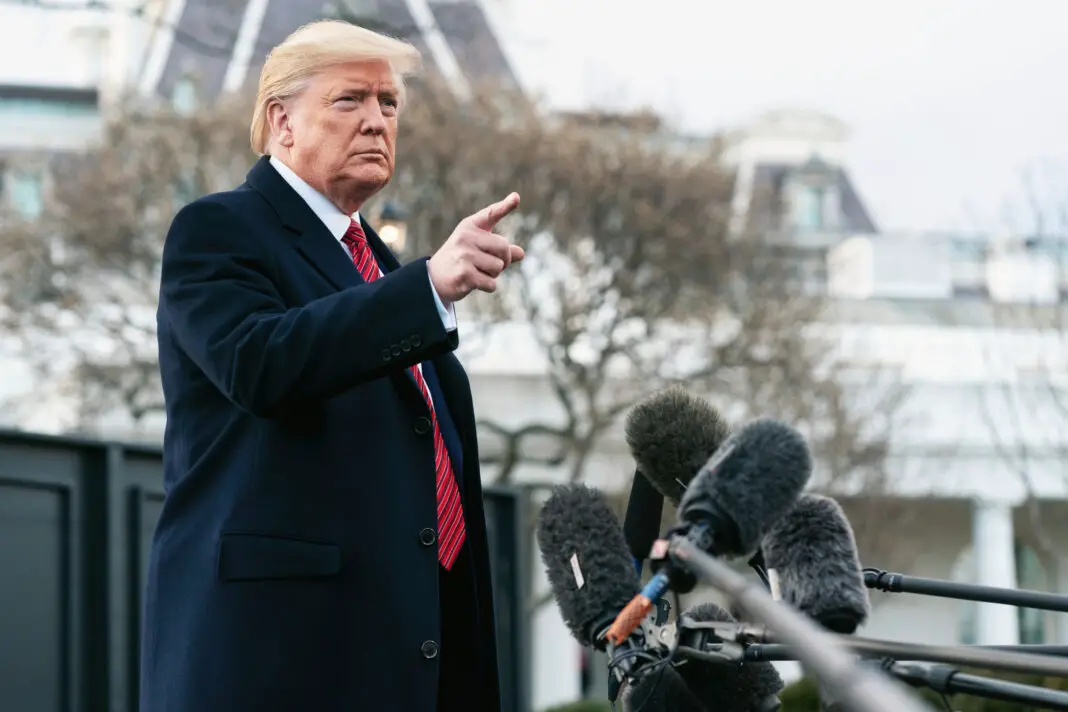President Donald Trump provided his clearest economic vision yet during a live satellite address to the World Economic Forum in Davos, Switzerland. Speaking from Washington on January 23, Trump detailed a comprehensive plan aimed at tackling inflation, taxes, and manufacturing growth.
More than 3,000 leaders from the public and private sectors took part in the event, including more than 50 heads of state and numerous senior government officials.
“My message to every business in the world is very simple: Come make your product in America and we will give you among the lowest taxes of any nation on Earth,” Trump declared. He followed up with a warning – if products are not made in the US, then the business will be required to pay a tariff.
The president’s plan centers on four key elements: lowering corporate tax rates from 21% to 15%, implementing tariffs on foreign-made products, expanding oil production, and reducing interest rates. Trump predicts the tariffs would generate hundreds of billions or even trillions in revenue to offset tax cuts while incentivizing domestic manufacturing.
Trump’s carrot-and-stick approach aims to boost U.S. manufacturing by offering lower taxes for companies that produce domestically while penalizing those that manufacture abroad. The proposed tariffs would help fund both the tax cuts and reduce America’s debt, according to Trump’s plan.
JPMorgan CEO Jamie Dimon offered support for aspects of Trump’s approach at the Davos gathering. He said that Trump’s plan is “a little inflationary,” but might be good for national security.
However, economists point to potential challenges. The 2017 corporate tax cut, while boosting wages and productivity, failed to offset revenue losses and widened the U.S. deficit according to analysis from Chicago’s Booth School of Business. Additionally, tariff costs are typically passed on to American consumers.
James Angel, a professor at Georgetown McDonough’s Psaros Center for Financial Markets and Policy, expressed strong concerns: “I think his economic policies are insane.” He explained that high tariffs disrupt international trade flows – when imports are restricted, it reduces the ability to export as well, ultimately resulting in widespread job losses.
Trump’s energy proposals face practical hurdles. Despite record U.S. oil production, energy companies have shown limited interest in new drilling leases. A recent Alaska wildlife refuge drilling auction received zero bids. The president says he plans to negotiate with OPEC to increase production and lower prices, while also boosting domestic output through executive orders.
On interest rates, Trump stated he would “demand” immediate reductions once oil prices drop. However, the Federal Reserve has historically maintained its independence in setting monetary policy, with previous attempts at presidential intervention meeting firm resistance.
The mounting U.S. deficit presents another challenge to Trump’s economic vision. America’s borrowing needs for popular social services, including Social Security and Medicare, require issuing Treasury bonds. Increased bond issuance typically leads to lower bond prices and higher yields, which affect consumer loan rates including mortgages. Recent mortgage rate increases above 7% occurred despite Federal Reserve rate cuts, partly due to concerns about government borrowing.
Mina Al-Oraibi, the editor-in-chief of The National, commented, “The unpredictability that Trump represents, is also the unpredictability of the world.”











